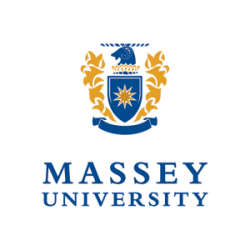
Work-Integrated Learning
Status
Completed: 1 October 2011
Project Details
A project completed in 2011, undertaken by Massey University, to develop a template for good practice in work integrated learning (WIL) programmes for tertiary training organisations and educators offering workplace learning opportunities to students.
Aims:
The main aims of the project were to:
- develop resources aimed at tertiary training organisations and educators offering workplace learning opportunities to students
- develop resources focusing on theoretical content and practical information for students, lecturers, and employers and including a template for good practice.
Methodology:
A mixed method approach was used involving:
- a literature review
- relevant documentation (e.g. course/paper outlines, graduate competencies, etc.)
- interviews with academic supervisors and work integrated learning supervisors.
Team

Andy Martin
Project Leader
Massey University
Malcolm Rees
Massey University
Manvir Edwards
Massey UniversityStatus
Funding
$10,000.00 (excl GST)
Key Findings
The key findings from the project included:
- A template for good practice focuses on practical information for students, lecturers, and employers and is based on six themes: organisation set- up, student preparation, supervision, competencies, pedagogies and assessment.
- Specific components, which when melded together, define an optimal WIL activity through the tripartite partnership between the employer, the teacher, and the student. The student brings to the WIL placement theoretical knowledge, industry skills and prior experiences, which have helped develop their personality. The WIL experience then provides the opportunity for the student to develop both personal and professional attributes and enhance employability upon graduation. It adds a complementary, professional dimension to academia, and builds networks. Done well, WIL benefits each stakeholder within the tripartite relationship.
- Benefits to the students: clearly one of the themes is that WIL enhances employability. In fact, many students set up employment opportunities whilst on WIL placements. They also develop a range of additional competencies or work-based knowledge that is not as easy to learn through conventional means.
- Benefits to the workplace: the workplace can also benefit greatly by having a student on placement. They are often able to provide a new or innovative point of view not recognised by those already in that workplace. WIL also provides the opportunity to prepare and evaluate potential employees, along with gaining assistance and expertise in ongoing related projects.
- Benefits for the University: the university both directly and indirectly benefits from the WIL experience as much as the student. Students are able to demonstrate professional competencies and indirectly provide an assurance of high standards to employers. WIL also provides collegial contact with professionals in the field and enlarges the scope of the curriculum.
Key Recommendations
Key recommendations from the project were:
Reflection | Reflection should be an explicit learning objective of Work Integrated Learning (WIL) experiences. The objective of reflection is to learn from experience by reflecting in action (reflection which occurs in the midst of experience) and through reflection after an event (reflection on action).
Pedagogical approach | A range of pedagogies provide students with content knowledge and theory, linked to practical work through the placements/ practicum or project. Programmes should be applied in nature, employing group work and other pedagogies to foster both industry skill development and behavioural soft skills development.
Point of difference | Increasingly, the Work Integrated Learning (WIL) experience is providing a point of difference for students in enhancing their employability after tertiary education. There is a variety of WIL practice, with passionate staff leading WIL programmes across a range of disciplines. Structured guidelines provide clear outcomes for students, academic and workplace supervisors. Preparation is important and applied learning should be integrated as part of the whole programme of learning.
Comprehensive industry skill set | WIL programmes seek to provide graduates with a comprehensive industry skill set desired by potential employers, in particular the development of behavioural competencies such as self-confidence, communication, customer relationship management, initiative, and relationship building. These personal attributes and graduate capabilities are important for success in the workplace.
A research report prepared by Andy Martin, Malcolm Rees and Manvir Edwards.
(PDF,562 KB, 41-pages).
- 1 October 2011
A resource prepared by Andrew Martin and Helen Hughes.
(PDF, 258 KB, 16-pages).
- 1 October 2011
A resource prepared by Andrew Martin and Helen Hughes. Published 2011.
(PDF, 304 KB,16-pages).
- 1 October 2011
A resource prepared by Andrew Martin and Helen Hughes.
(PDF, 288 KB, 16-pages).
- 1 October 2011
A resource prepared by Andy Martin, Malcolm Rees and Manvir Edwards.
(PDF, 373 KB, 20-pages).
- 1 October 2011